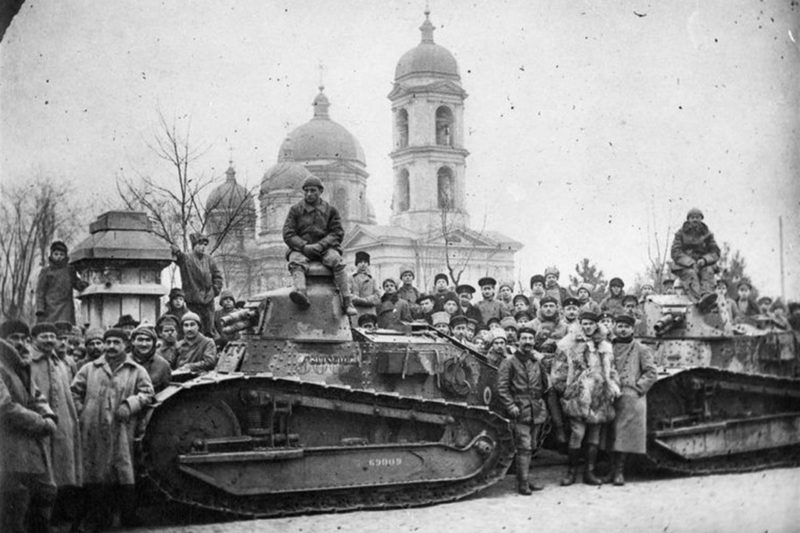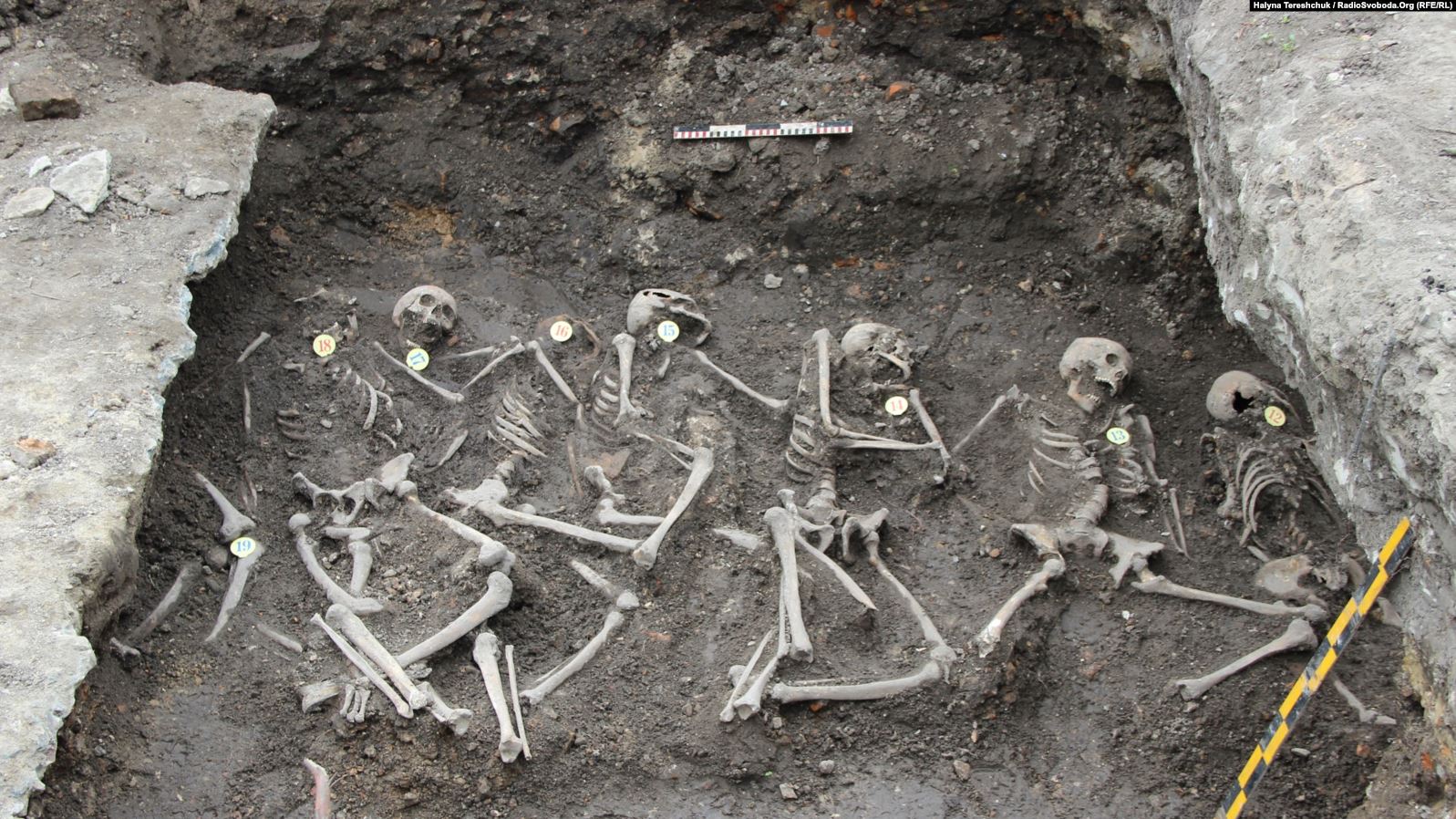How did the UNR army manage to chase the Bolsheviks from the Donbas towns in just three weeks? How did the residents perceive Sikevych and the UNR? Why is the patriotism and Ukrainian identity of some Donbas regions questioned today? Oleksiy Beshulia, publisher, project manager and compiler of 1918. Donetsk Blitzkrieg and historian and advisor Ihor Bondarenko explain...
- Oleksiy, where did you get the idea to publish this book? Why has the book appeared just now?
Oleksiy Beshulia: Five or six books on this topic were published in Canada from 1941 to 1951. They’ve never been published in Ukraine. Apparently, no one was very interested in this topic, and no one actually wanted to study this period of Donbas history. Moreover, General Sikevych wasn’t at all known in Ukrainian history and historiography. Therefore, it was probably unprofitable for book publishers to publish his memoirs.
But, I decided to try it. The book is currently on sale in most book stores, and it’s doing quite well.
- As a publisher, what impressed you most in these memoirs? Did you come across anything interesting or unexpected?
Oleksiy Beshulia: The book is about one big adventure. First, I found these memoirs, then, given that 70 years have passed since Sikevych’s death, we had to find his descendants. I found a great-grandniece living in Lviv, and we agreed to publish this book with her. Then, there was a long period while I was looking for funding.
These aren’t your usual dry, boring memoirs. On the contrary, they’re written in poetic language, with elements of Ukrainian sentimentalism. The author interviews soldiers, and tries to convey their life stories. There are even sections that are so melodramatic that you may want to shed a tear!
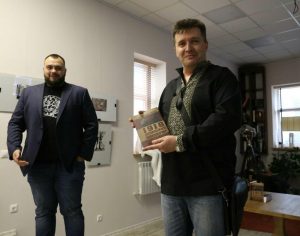
- What exactly is the book about?
Oleksiy Beshulia: It’s about Volodymyr Sikevych, starting from 1917, when he joined the UNR Army until the last battles in the Donbas.
- Ihor, tell us about Volodymyr Sikevych. And why do we know so little about a person who had such a great influence on the course of our history?
Ihor Bondarenko:
We’ve just celebrated 27 years of independence. However, during this period, history – as a science, as a subject - has not been state-centered or nationally oriented.
For years on end, we’ve been historically enslaved by different myths that still exist today: Soviet myths, imperial myths, even Ukrainian myths.
Today, our country is going through turbulent times, and not every nation could survive what we’ve lived through.
As for Sikevych… many readers may be wondering why we’re writing about the Ukrainian Donbas. Since the 1990s, we’ve been hearing that the Donbas is a separate entity, very different from the rest of Ukraine. However, in the preface to this book, the author writes that the Donbas is Ukraine, the real Ukraine.
- Yes, he even says that it’s difficult to imagine a more Ukrainian region than the Donbas.
Ihor Bondarenko: That’s right! As a historian, I can say that a significant number of people from that region were real heroes, the driving force behind Ukrainian state-building.
Not many people know about Sikevych and his vision, namely that Ukraine is a single entity, despite its turbulent historical development. The pages of Ukraine’s history are complicated, but we must unravel them.
These memoirs reflect all the events that took place in 1917-1918. Strong personalities like Sikevych were the driving force behind the Ukrainian revolution, and Ukrainians were really very close to forming a nation and state. Unfortunately, historical events unfolded differently. In the end, it’s not the history of our defeats, but the history of our victories.
- Here’s Volodymyr Sikevych’s description of how he and the soldiers of the UNR Army were met by local residents:
“Our cavalry gathered early in the morning on April 21 and set out in all its Cossack glory to conquer our territories. I followed the troops in my vehicle. We arrived in Kramatorivka near mid-day. The workers met us with bread and salt, and hoisted a Ukrainian flag with the inscription: “Let this flag be a blessing from the workers in the struggle for an independent, and united Ukraine. We stand with you!” Sotnyk (Cossack captain-Ed.) Liakhovych approached them, took the flag, handed it to the standard bearer and said: “We’re honoured to accept your blessing and will do everything possible to fulfill your will so that this joyous song “Shche ne Vmerla Ukrayina!” (The Glory and Freedom of Ukraine have not perished! – State Anthem of Ukraine-Ed.) echoes throughout Ukraine. And this must be, because the army and the workers represent an unvanquished force! Thank you and glory to you and all the Ukrainian workers who share your ideals.”

- Oleksiy, do you trust this description or do you think it’s all propaganda?
Oleksiy Beshulia: I believe we can have faith in his description. In this book, Sikevych mentions that there were minor clashes between his army and some partisans. Hetman Pavlo Skoropadsky and the Ukrainian State had already been installed in most territories of Ukraine (except for western Ukraine); there was no mass opposition.
The Bolshevik uprising in the Kyiv Arsenal in February 1918 was suppressed by the Sloboda Ukraine Kish (Haidamaky) led by Symon Petliura; it consisted mostly of men from the eastern regions of Ukraine. The last Ukrainian garrison to surrender in the East was Luhansk. It would have never resisted so long without minimal support from the local population.
- Oleksiy, only three weeks were required to liberate the Donbas from Russian-Bolshevik occupation. How did Sikevych and the UNR Army manage so quickly?
Oleksiy Beshulia: According to the memoirs, it was quite easy. At that time, the UNR army wasn’t officially fighting against communist Russia, but against the “Donetsk-Kryvy Rih Republic”*. In fact, the most important battle lasted no more than two days. The Bolsheviks had a normal military structure and many military units, but they surrendered very quickly. For the most part, they actually thought they’d fire the first salvo and meet with no resistance.
The main battles were at Barvinkove-Slavyansk, then there was a big battle for Horlivka, Debaltseve, and finally a few local clashes.
Editor’s Note:
*The “Donetsk-Kryvy Rih Soviet Republic” was a self-declared Soviet republic of the Russian SFSR founded on February 12, 1918. The Republic was disbanded at the second All-Ukrainian Congress of Soviets on March 20, 1918 when the foundation of Soviet Ukraine was announced. It failed to achieve recognition, either internationally or by the Russian SFSR and was abolished.
The legacy of the “Donetsk–Kryvy Rih Soviet Republic” was revived during the War in the Donbas that began in 2014. On February 5, 2015, the legislature of the self-declared “Donetsk People’s Republic” (DNR) adopted a memorandum declaring the DNR to be the legal successor to the “Donetsk–Kryvy Rih Soviet Republic”.
*The “Donetsk-Kryvy Rih Soviet Republic” was a self-declared Soviet republic of the Russian SFSR founded on February 12, 1918. The Republic was disbanded at the second All-Ukrainian Congress of Soviets on March 20, 1918 when the foundation of Soviet Ukraine was announced. It failed to achieve recognition, either internationally or by the Russian SFSR and was abolished.
The legacy of the “Donetsk–Kryvy Rih Soviet Republic” was revived during the War in the Donbas that began in 2014. On February 5, 2015, the legislature of the self-declared “Donetsk People’s Republic” (DNR) adopted a memorandum declaring the DNR to be the legal successor to the “Donetsk–Kryvy Rih Soviet Republic”.
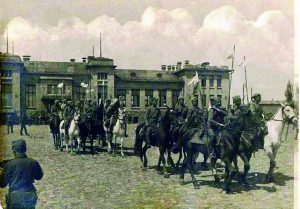
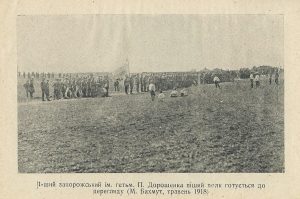
- Ihor, you taught history in Donetsk before it was occupied. Did you ever talk about Sikevych? How did your students perceive this information?
Ihor Bondarenko: I didn’t talk about Sikevych directly, but all my lectures and research were oriented towards Ukraine as a nation and a state. I began teaching in the mid-1990s, only a few years after independence. There was a huge generational conflict: different people told different stories.
I attended a teaching course in 2014. At that time, some individuals, who later became advocates of different myths, including “Novorossiia”, were promoting books and pamphlets about their vision of the Donbas, and complaining that Kyiv refused to listen to them. Nobody listened to them. I’m deeply convinced that there’s no separatism in those regions today, but there is Russian occupation and collaboration with the enemy.
Therefore, the Donbas must be liberated and the government must build a strategy for the development of this region.
- Let’s get back to Sikevych. How did he perceive the region? Did he note any differences?
Oleksiy Beshulia: For him, it was an absolutely ordinary Ukrainian region. He didn’t note any special characteristics. For example, I’ve read many memoirs written by German soldiers that served in the Donbas in 1941-1943; most of them wrote that this was Ukraine.


